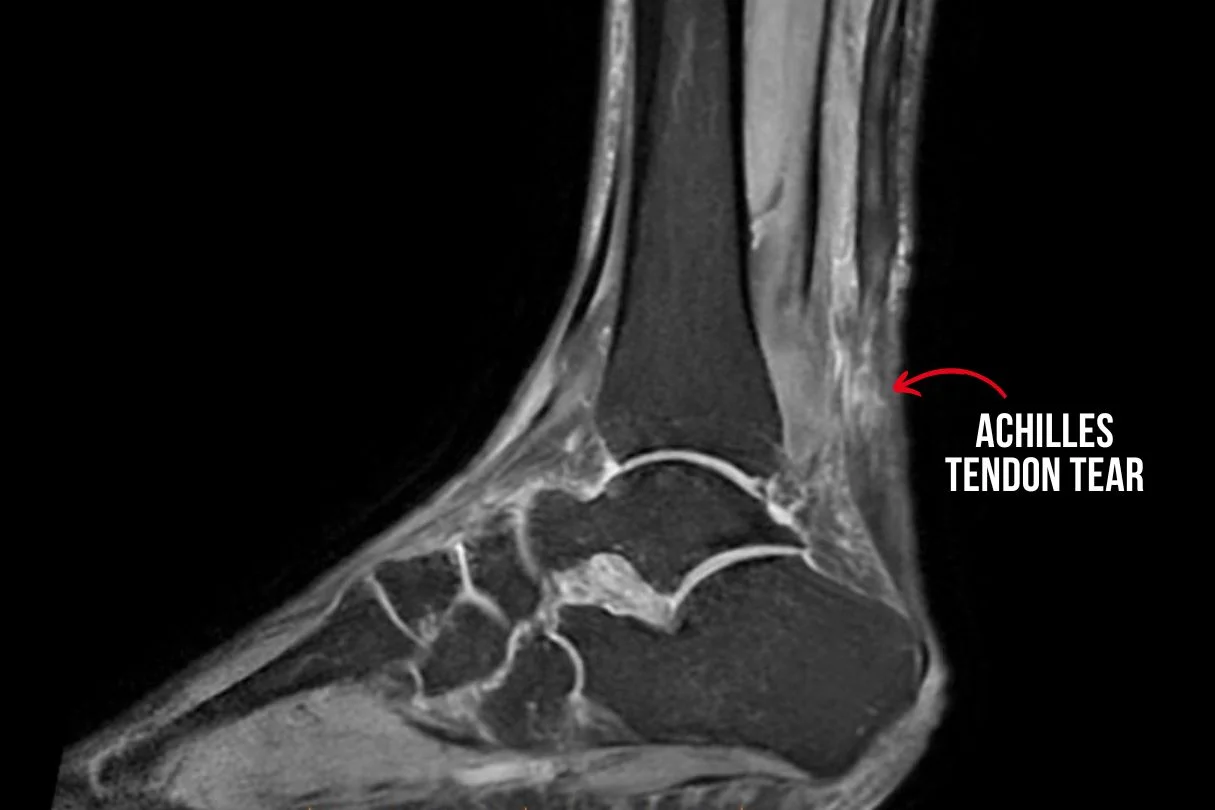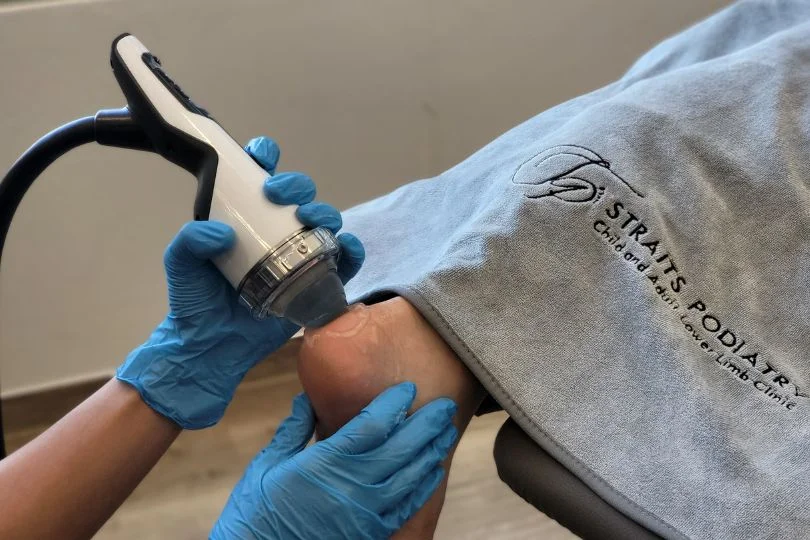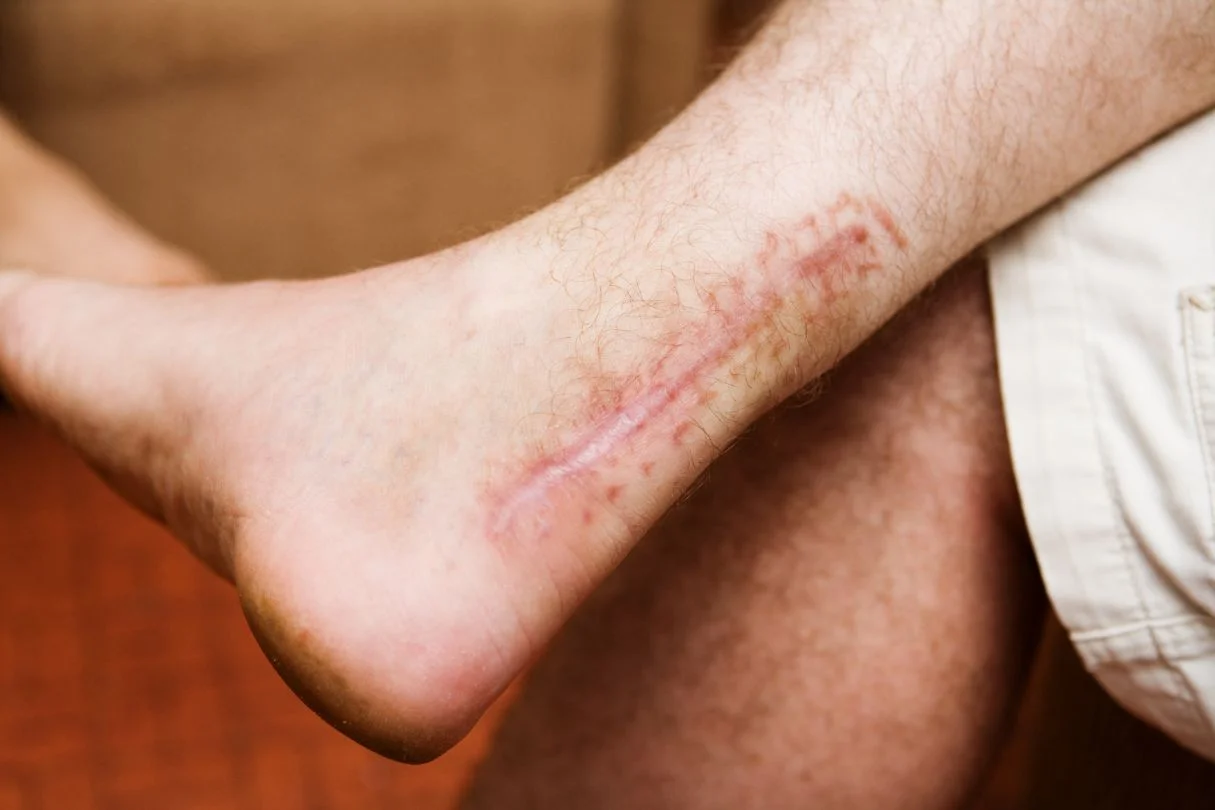An Achilles tendon tear or rupture can be a debilitating injury, often affecting athletes and active individuals. Understanding the signs and symptoms can help you identify if you might be from this condition. Here’s a comprehensive guide to recognising an Achilles tendon tear:
Understanding the Achilles Tendon
The Achilles tendon is the largest tendon in the body, connecting the calf muscles to the heel bone. It plays a crucial role in walking, running, and jumping. When this tendon is overstretched or torn, it can lead to significant pain and impaired mobility. An Achilles tendon tear differs from Achilles tendinitis, which is an inflammation of the tendon without a tear.
The most common cause of Achilles tendon tear or rupture is sports. This is especially true for sports that require movements such as lunges or jumps. Examples of such activities are badminton, tennis, or basketball.
Signs and Symptoms of an Achilles Tendon Tear
- Sudden, Severe Pain: One of the hallmark symptoms of an Achilles tendon tear is a sudden and sharp pain in the back of the ankle or calf. This often occurs during physical activity or even a sudden movement.
- Swelling and Tenderness: Following the injury, you may notice swelling around the heel and ankle. The area might also feel tender to the touch, indicating inflammation and damage to the tendon.
- Difficulty Walking or Standing on Toes: An Achilles tendon tear can make it challenging to stand on tiptoe or push off the affected leg when walking. This is due to the weakened or damaged tendon’s inability to support these movements.
- A “Pop” Sensation: Some individuals report hearing or feeling a “pop” at the time of injury. This sensation often accompanies the tear of the Achilles tendon and is followed by immediate pain and weakness in the leg.
- Bruising: In severe cases, bruising may develop around the heel and ankle area. This occurs due to bleeding within the tissues surrounding the torn tendon.

Diagnosis and Treatment
If you are experiencing these symptoms and suspect that you may have an Achilles tendon tear, it is crucial to seek medical attention promptly. A podiatrist or orthopaedic specialist can perform a physical examination, checking for relevant signs and assessing the Achilles tendon structure.
Diagnostic tests such as ultrasound or MRI scans are typically necessary to confirm the extent of the injury. Treatment options will depend on the severity of the tear but commonly include:
- Rest and Immobilization: Keeping weight off the injured leg and using crutches or a walking boot to allow the tendon to heal.
- Exercise and Strengthening: Gradual rehabilitation exercises to strengthen the calf muscles and improve flexibility.
- Advanced Therapies: Regenerative therapies, such as shockwave therapy or pulsed electromagnetic field therapy, can stimulate the natural healing of the tendon.
- Surgical Repair: In cases of a complete tear or severe injury, surgery may be necessary to reattach the tendon ends and restore function.

Recovery and Prevention
Recovering from an Achilles tendon tear can be a lengthy process, often requiring several months of rehabilitation. However, with proper care and adherence to treatment protocols, many individuals can regain full function of their ankle and return to their previous level of activity.
To prevent Achilles tendon injuries, it is essential to:
- Warm up and Stretch: Before engaging in physical activity, ensure your muscles are adequately warmed up and stretched.
- Gradually Increase Intensity: Avoid sudden increases in training intensity or duration, which can strain the Achilles tendon.
- Use Proper Footwear: Wear supportive shoes appropriate for your activity, particularly if you participate in sports that involve running or jumping.
By recognising the signs of an Achilles tendon tear early and seeking timely treatment, you can improve outcomes and minimize the risk of long-term complications. If you suspect you may have injured your Achilles tendon, don’t hesitate to consult with a healthcare professional for a thorough evaluation and personalised treatment plan.
Jackie Tey
Chief Podiatrist, B.Pod(Hons). Your foot and lower limb specialist passionate about raising awareness for foot and lower limb health.








